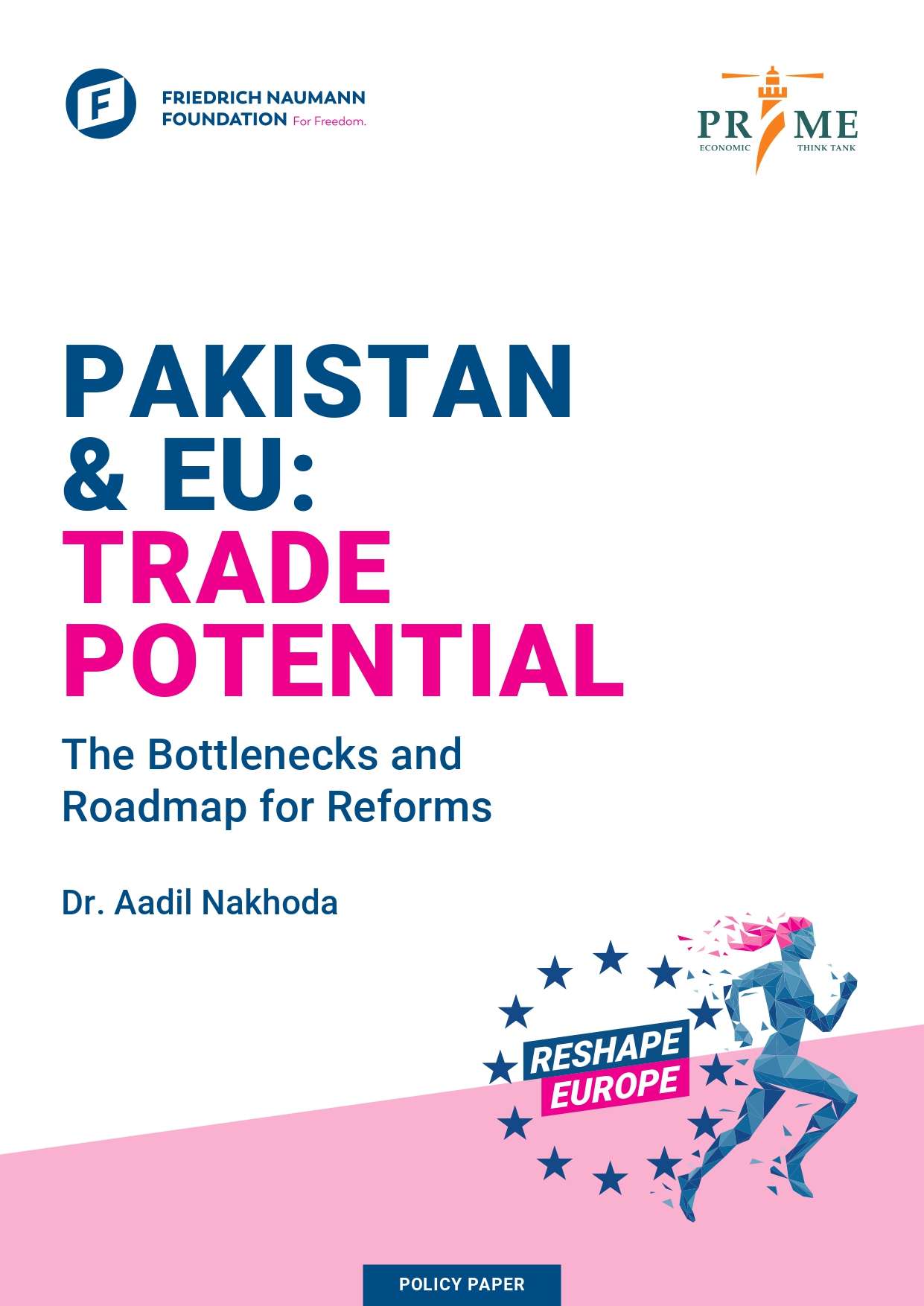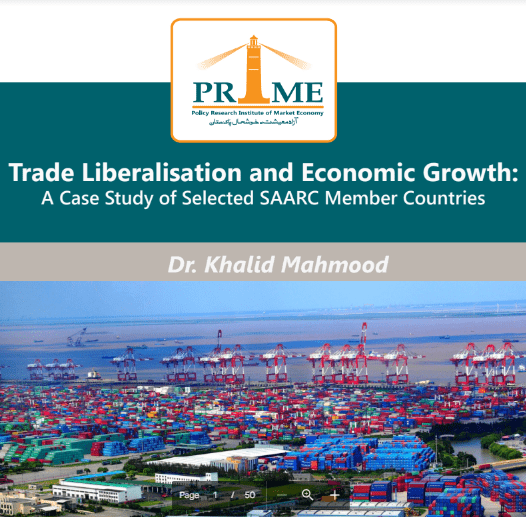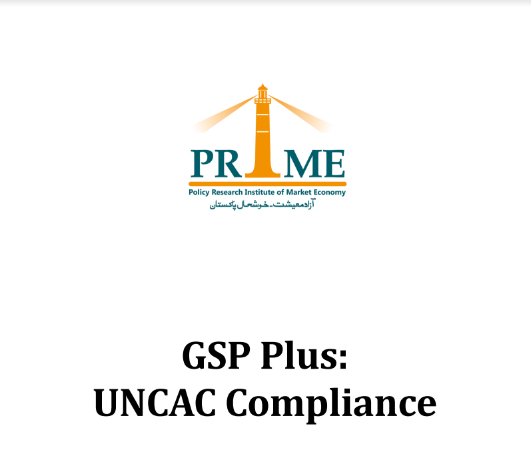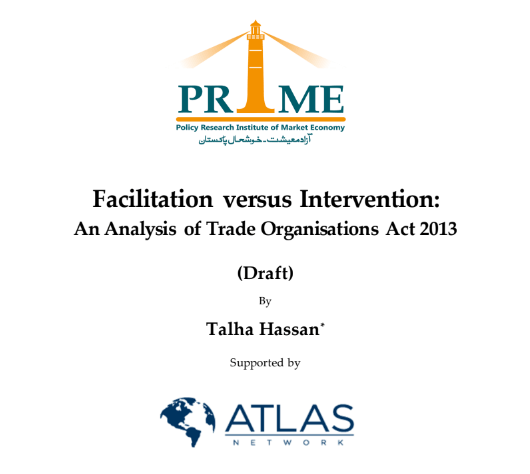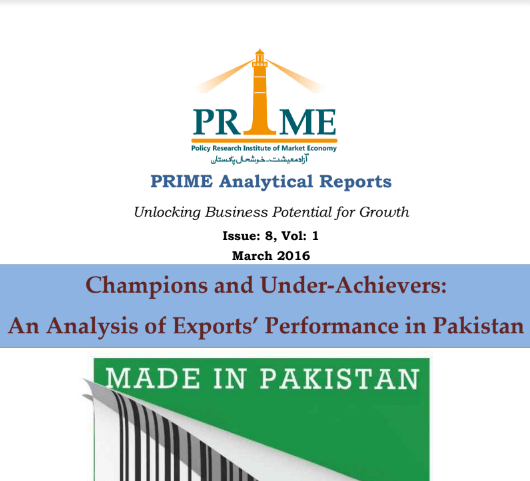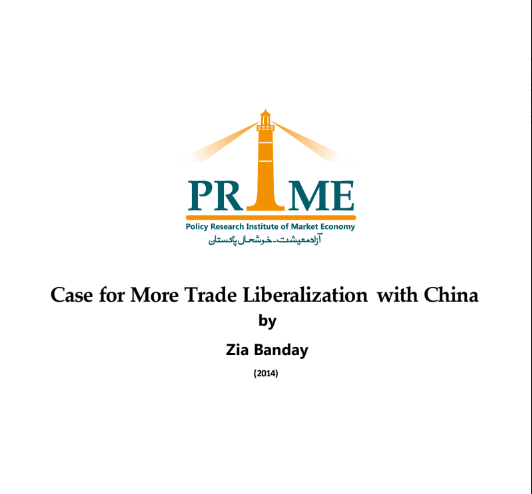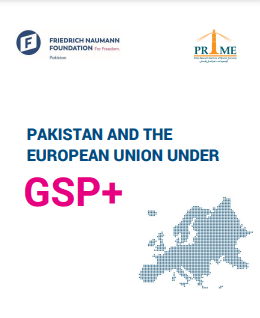PAKISTAN & EU:TRADE POTENTIAL
The Bottlenecks and Roadmap for Reforms
Trade plays a vital role in driving economic growth, but Pakistan’s trade performance has been volatile, with stagnant export growth and a rising trade deficit. The Generalized Scheme of Preferences (GSP) Plus is offered to a select group of exporters to the European Union (EU) based on a set of pre-defined criteria and the fulfillment of various conventions regarding human rights, labor rights, good governance, climate change and environment protection. Pakistan received the status on January 1, 2014. Pakistan currently is a signatory to all the 27 conventions and is also a signatory to the additional conventions proposed under a new revised scheme that is likely to replace the current one that is expiring at the end of this year. Although, Pakistan is not in imminent danger of losing the preferences awarded to its exporters, uncertainties loom as Pakistan faces challenges that can adversely impact its status. While Pakistan has experienced growth in trade with the EU during the GSP Plus period, it is imperative that the exporters continue to receive the preferences. To fully exploit trade potential and effectively compete with counterparts, it is essential to assess the trade patterns. This report undertakes a comprehensive exercise to not only determine the trading patterns with the EU but also bring forward recommendations that can help boost Pakistan’s exports to the EU and to the world.
This study outlines and evaluates the pattern of imports into the European Union (EU) from Pakistan, highlighting not only on the significance of the trading relationship between the EU and Pakistan but also emphasizing on the potential threats and risks if the preferences to Pakistani exporters offered through the GSP Plus Scheme are revoked. The main objective of this report is to identify the bottlenecks hindering trade growth between Pakistan and the EU and propose reforms to enhance bilateral trade relations such that Pakistan can benefit more from the GSP Plus scheme. The study undertakes a comparative analysis as it considers the trade patterns between the EU and Bangladesh, India and Vietnam. These three countries are major regional counterparts that are likely to influence the trading relationship between Pakistan and the EU.
Pakistan is the largest beneficiary of the GSP Plus scheme. The EU imported $9.1 billion from Pakistan in 2021, increasing from $5.4 billion in 2013. More than $6 billion of the imports in 2021 were under the GSP Plus preferences. The largest industry was the textile industry, accounting for approximately 80 percent of the imports. While imports into the EU from Pakistan in rice has increased significantly since 2017, the imports in leather have decreased. The share of leather products in imports decreased from 10 percent in 2013 to 5 percent in 2021. Further, the set of top market destinations in the EU for the four Asian countries is approximately the same, suggesting that import demand is likely to be generated from within these markets. This highlights the need to emphasize product diversification. Analysis on the patterns of imports in other non-traditional industries is crucial for policymakers seeking export diversification. This study further considers four major products from industries which are not traditionally export-oriented in Pakistan, namely denatured ethy-alcohol, medical instruments, inflatable balls, and footwear as products in which Pakistan has shown relatively higher potential in terms of trade with the EU.
This report presents various challenges with the help of different trade indicators. For instance, Pakistan reports higher values of revealed comparative advantage in the exports of textile products, leather products and rice, but Pakistan and Bangladesh report relatively lower unit values, particularly in the exports of textile products to the EU. Indian and Vietnamese exporters are less likely to compete against Pakistan in terms of the unit value of imports into the EU, while Pakistani exporters may face competitive pressures from Bangladeshi exporters. Further, this report considers the imposition of technical non-tariff measures and the degree of regulatory convergence achieved towards those imposed by the EU. Although the indicator on the adoption of NTMs scores high for the Asian counterparts of Pakistan, the indicator on regulatory convergence scores low for all countries. Pakistan with low frequency and coverage of technical NTMS, lacks technical NTMs on its imports. This suggests that Pakistan does not impose pre-defined measures to counter the imports of substandard and dangerous goods into the country as observed in its counterparts, which has implications on quality of goods imported and produced in Pakistan. Customs and transport-related firm-level obstacles are briefly discussed towards the end of the report. Pakistani firms are the most constrained in this aspect.
One of the more important findings highlighted in this report is that the revocation of the GSP Plus status will lead to a trade loss of more than $3 billion, with significant loss in exports of bed linen, and men’s and women’s trousers. The biggest market affected will be Germany. The loss of $3 billion is significant as Pakistan faces critical balance-of-payment related challenges. Hence, it is crucial that all efforts are made to ensure that Pakistan complies with all the requirements to continue with the status. The loss of status will have a profound impact on the economy.
Click below to download the report:
Pakistan-and-EU-trade-potential.pdf
For inquiries, please contact info@primeinstitute.org or call at 03330588885.

